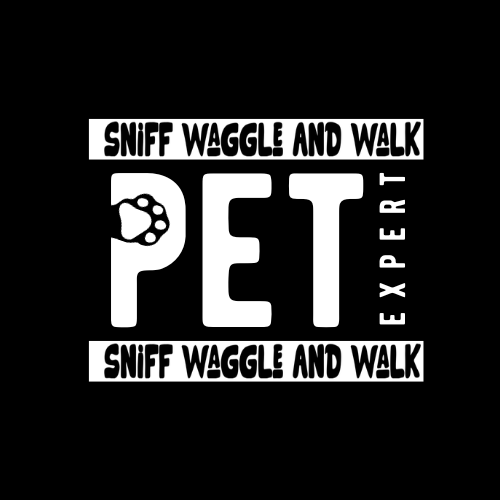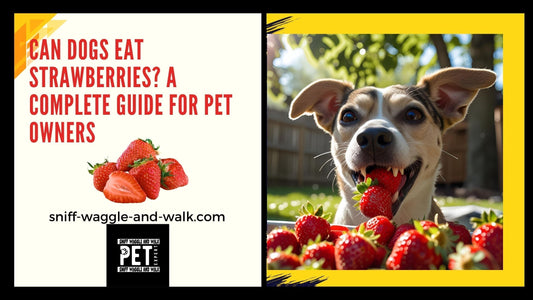
WHY DO DOGS EAT GRASS
Share
Ever catch your dog munching on grass and wonder what's going on? You're not alone. Many dog owners are puzzled by this seemingly odd behavior. But don't worry, we're here to dig into the reasons why your furry friend might be turning into a little herbivore. Let's explore the fascinating world of grass-eating dogs!
The Mystery of Grass-Eating Dogs
Why do dogs eat grass? It's a question that's been bugging pet owners for ages. There are plenty of theories and myths, but the truth might surprise you. From natural instincts to dietary needs, there are several reasons why your pup might be grazing like a cow.
Natural Instincts and Ancestral Behaviors
Connection to Wild Ancestors
Dogs are domesticated, but they still have a lot in common with their wild ancestors. Wolves and wild dogs often consume plant material in the stomachs of their prey. This behavior might be an inherited trait, a throwback to their wild days.
Instinctual Behavior
Sometimes, dogs just do things because it's in their nature. Eating grass might be one of those instinctual behaviors that don't have a clear-cut explanation but make sense in the context of their ancestry.
Curious about more ways to keep your dog healthy and happy? Check out our full range of pet supplies! 
Nutritional Needs
Potential Dietary Deficiencies
Could your dog be lacking something in their diet? It's possible. Dogs might turn to grass to fill a nutritional gap, especially when it comes to fiber.
Seeking Fiber
Fiber is crucial for a healthy digestive system. If your dog isn't getting enough from their regular food, they might seek it out elsewhere—like your backyard lawn!
Nutrient Scavenging
Other Nutrients Dogs Might Seek from Grass
Grass isn't just fiber; it contains other nutrients like vitamins and minerals. Your dog might be munching on grass to get a bit of these extra goodies.
Chlorophyll and Its Benefits
Chlorophyll, the green pigment in plants, has various health benefits. It might help with bad breath and act as a natural detoxifier. Who knew your pup could be so health-conscious?
Gastrointestinal Relief
Grass as a Natural Remedy
Ever notice your dog eats grass and then vomits? It sounds gross, but it might be their way of dealing with an upset stomach.
Upset Stomachs
If your dog has a tummy ache, eating grass can help them induce vomiting and get some relief. It's their version of reaching for the antacids.
Clearing Blockages
Grass can also help move things along in the digestive tract, acting as a natural laxative. This can be particularly helpful if your dog has a minor blockage.
Behavioral Reasons
Boredom and Grass-Eating
Dogs are curious creatures. If they're bored, they might start eating grass just to pass the time. It's their way of saying, "I need more fun!" Our interactive dog toys are great for keeping your pup entertained and mentally stimulated. Take a look.
Anxiety and Stress Relief
Just like humans might bite their nails when stressed, dogs might eat grass. It's a way to cope with anxiety or stress.
Attention-Seeking Behavior
Sometimes, dogs just want attention. If they notice that eating grass gets a reaction from you, they might keep doing it. It's their way of saying, "Hey, look at me!"
Exploration and Play
Eating grass can also be part of your dog's exploration and play. They use their mouths to explore the world, and sometimes that means nibbling on grass.
Potential Health Concerns
Risks Associated with Eating Grass
While eating grass is usually harmless, there are some risks to be aware of. Certain plants can be toxic, and grass treated with chemicals can be dangerous.
Toxic Plants
Not all greenery is safe for your pup. It's essential to know which plants in your yard could be harmful and remove them.
Parasites and Pesticides
Grass can harbor parasites, and if it's been treated with pesticides or herbicides, those chemicals can make your dog sick. Always be mindful of where your dog is grazing.
How to Manage Grass-Eating
Tips for Managing and Reducing Grass-Eating
If your dog's grass-eating is getting out of hand, there are ways to manage it. Providing a balanced diet and keeping them engaged can help reduce the behavior.
Providing a Balanced Diet
Ensure your dog's diet is balanced and meets all their nutritional needs. Sometimes, tweaking their food can reduce their urge to munch on grass.
Conclusion
So, why is your dog eating grass? It could be instinct, nutrition, or just plain boredom. While it's generally not harmful, keeping an eye on your dog's grass-eating habits is always a good idea. With a balanced diet and plenty of attention, you can help your furry friend enjoy a healthier, happier life.





